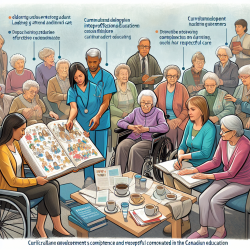Introduction
In the ever-evolving field of transplantation, practitioners are constantly seeking ways to enhance their skills and improve patient outcomes. One area that has gained significant attention is the collaboration between transplant professionals and law enforcement to combat trafficking in human beings for organ removal (THBOR). The research article "Stimulating and Enhancing Partnerships Between Transplant Professionals and Law Enforcement: Recommendations" provides valuable insights into how these partnerships can be fostered and the roles that practitioners can play in this endeavor.
The Importance of Collaboration
Collaboration between transplant professionals and law enforcement is crucial in detecting and preventing illegal organ transplantation. The article highlights three key levels of cooperation:
- Identification of Victims: Practitioners play a pivotal role in identifying potential victims of THBOR during the screening process. By being vigilant and informed, healthcare professionals can detect suspicious cases early on.
- Reporting of Illegal Activities: Practitioners are often hesitant to report illegal activities due to concerns about patient confidentiality. However, the article suggests that legal frameworks can be established to protect both patients and practitioners, encouraging the reporting of illegal transplants.
- Professional Responsibility: Practitioners have a duty to uphold ethical standards and report colleagues involved in illegal transplantation practices. Professional societies can support this by providing education and resources to help practitioners recognize and report unethical activities.
Practical Recommendations for Practitioners
The article provides several recommendations for practitioners to enhance their skills and contribute to combating THBOR:
- Engage in Multidisciplinary Screening: Practitioners should participate in thorough, multidisciplinary screenings of potential living donors to ensure the absence of THBOR.
- Adopt Ethical Guidelines: Practitioners should adhere to local or international guidelines related to THBOR, such as those proposed by professional societies and the Declaration of Istanbul.
- Educate Patients: It is essential for practitioners to educate patients about the medical, ethical, and legal risks associated with receiving organs from trafficked individuals.
- Collaborate with Law Enforcement: Practitioners should work with legal professionals to establish anonymous reporting mechanisms that protect the doctor-patient relationship.
Encouraging Further Research
While the article provides a comprehensive overview of the current state of collaboration between transplant professionals and law enforcement, it also highlights the need for further research. Practitioners are encouraged to explore the following areas:
- Impact of Education Programs: Research the effectiveness of educational programs aimed at increasing awareness of THBOR among healthcare professionals.
- Development of Reporting Mechanisms: Investigate the feasibility and effectiveness of anonymous reporting systems for illegal transplantation activities.
- Cross-Border Collaboration: Study the potential for international collaboration in combating THBOR, particularly in regions with high rates of illegal transplantation.
Conclusion
By fostering collaborative partnerships between transplant professionals and law enforcement, practitioners can enhance their skills and contribute to the global effort to combat THBOR. Through education, ethical practice, and proactive reporting, healthcare professionals can play a vital role in ensuring the integrity of the transplantation system.
To read the original research paper, please follow this link: Stimulating and Enhancing Partnerships Between Transplant Professionals and Law Enforcement: Recommendations.










